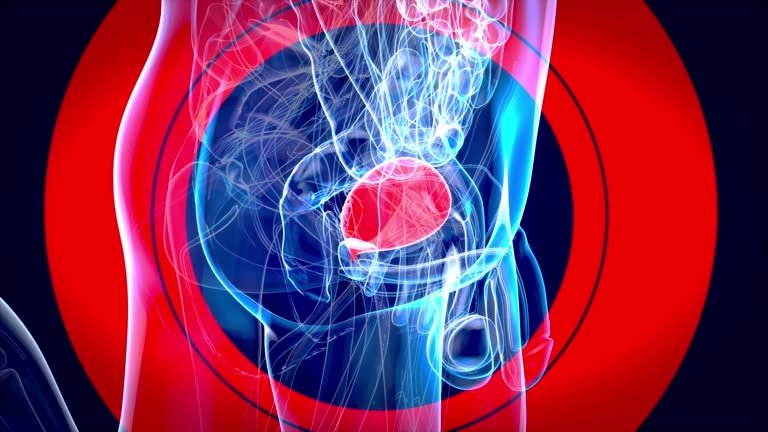Bladder cancer is a menacing malignancy that originates in the bladder, the organ responsible for storing urine. As one of the most common cancers globally, it predominantly affects older adults and individuals exposed to certain environmental and lifestyle risks. This article delves into the causes, types, and the potential role of alternative treatments, such as homeopathy, in managing this challenging disease.
How it Develops
Bladder cancer begins when the cells in the bladder undergo abnormal changes due to genetic mutations. These mutations cause the cells to grow and divide uncontrollably, forming tumors. Over 90% of bladder cancers start in the urothelial cells that line the inner surface of the bladder, a type known as urothelial carcinoma or transitional cell carcinoma. If left untreated, these abnormal cells can invade deeper layers of the bladder wall and may spread to nearby organs or distant parts of the body.
Classification
- Urothelial Carcinoma: The most common type, accounting for 90% of all bladder cancers, caused by smoking and exposure to chemicals.
- Squamous Cell Carcinoma: Accounts for 1-5% of bladder cancers, often linked to chronic irritation or infection.
- Adenocarcinoma: A rare type (<1%), aggressive and invasive, arising from glandular cells in the bladder lining.
- Small Cell Carcinoma: Highly aggressive and rare, originating from neuroendocrine cells.
- Sarcoma and Other Types: Rare and aggressive, originating in muscle or connective tissue.
Signs and Symptoms
- Blood in the urine (haematuria)
- Frequent or painful urination
- Pelvic or lower back pain
- Unexplained weight loss
- Difficulty urinating
- Recurrent Urinary Tract Infections (UTIs)
Causes and Risk Factors
Lifestyle and Environmental Exposures:
- Smoking – The leading cause.
- Low water consumption – Increases toxin concentration.
- Occupational hazards – Exposure to industrial chemicals.
- Chronic bladder irritation – Linked to infections and catheter use.
Genetic and Molecular Changes:
- Oncogene activation – Uncontrolled cell growth.
- Tumor suppressor gene inactivation – Loss of cell regulation.
- Epigenetic changes – Abnormal gene expression.
Other Risk Factors:
- Age – Common in individuals over 55.
- Gender – More prevalent in men.
- Family history – Slightly increases risk.
- Parasitic infections – Linked to schistosomiasis.
Epidemiology
Bladder cancer accounts for 2-3% of all cancer cases in India, with men being 3-4 times more likely to develop it. Higher rates are observed in urban areas, primarily affecting individuals aged 60 years and above.
Homeopathic Treatment for Bladder Cancer
Bladder cancer is a complex disease influenced by genetic, environmental, and lifestyle factors. While allopathic treatments can be expensive and physically challenging, homeopathy offers an alternative approach. Unlike conventional treatments that focus on palliation, homeopathy aims for a permanent cure by addressing the root causes and restoring the body's natural balance. Through personalized remedies, homeopathy seeks to boost immunity, alleviate symptoms, and improve overall quality of life without the harsh side effects of conventional therapies.
